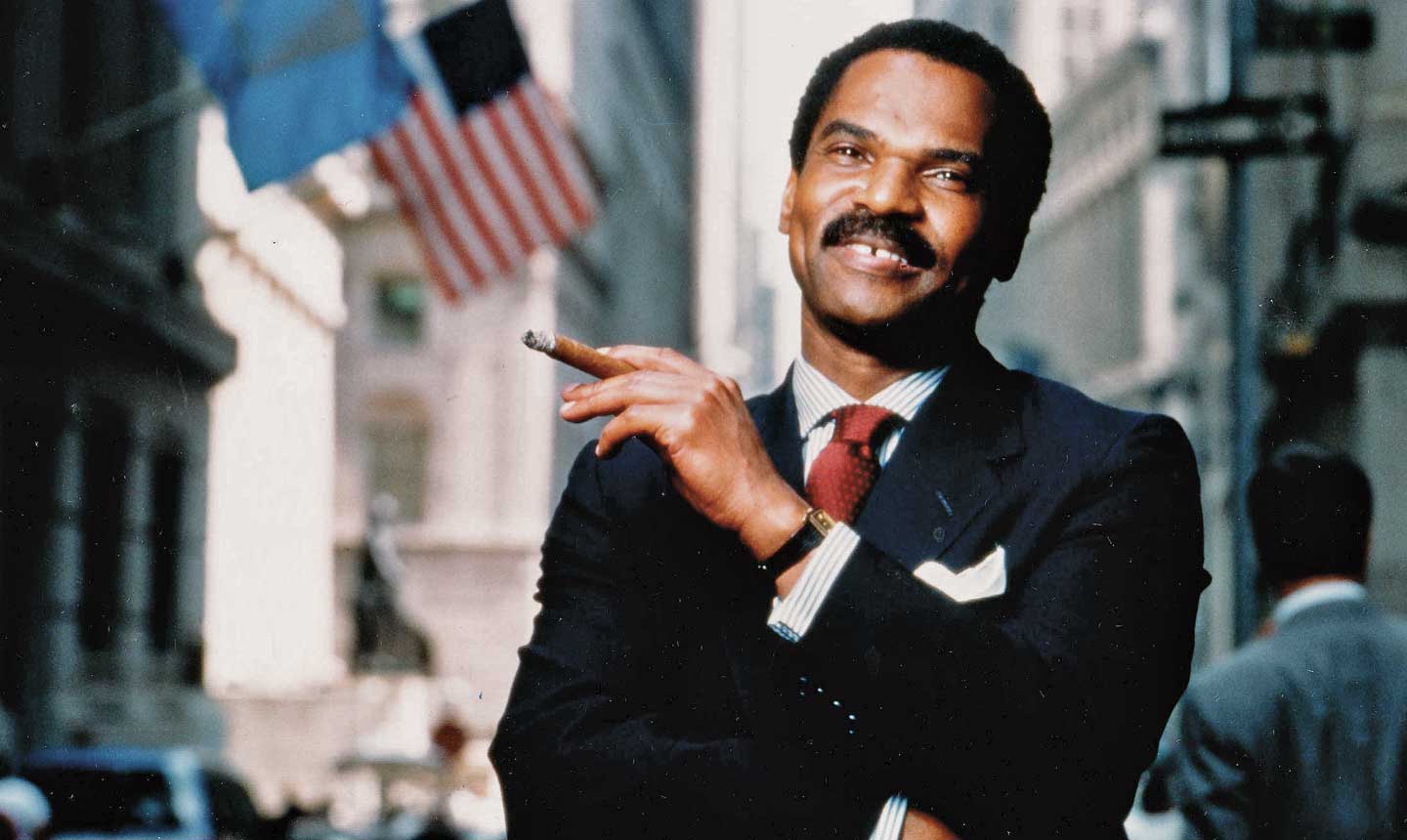
Many young, up-and-coming American entrepreneurs often have misconceptions about how numerous business empires are entirely dominated by White magnates. According to research by Alex Cook, White people own 85.6% of American businesses while African Americans have ownership of 2.5% in 2020. Victor Ray, an Associate Professor in African American Studies and Sociology and Criminology, stated that historical reinforcement of White dominance has resulted in radial disparities within workplaces from unfair selection policies and environments, leading to a decline in non-white representation in administrative power.
However, some have argued that there is an increase in the entrepreneurship of people of color. With laws and regulations canceling out disadvantageous qualifications and readjusting policies about employee treatment, there is more room for non-White businessmen to take the spotlight. One of them is Reginald Francis Lewis, an aspiring and tough entrepreneur who became the first African American to own a billion-dollar company. With a law firm, a national conglomerate, and several philanthropies under his belt, he has inspired numerous POCs to pursue business, law, and finances.
Index
A Strong Drive

Lewis was born to Clinton and Carolyn Lewis in a working-class community on December 7, 1942. According to his biography, he was raised to be ambitious and determined by his parents and relatives at a young age, formulating a work ethic that stayed with him for all his life; he was taught the value of savings by his grandmother as well.
When Lewis was ten years old, he had already made his first venture into business: newspaper delivery service. With Baltimore Afro-American News supplying, Lewis created his delivery route, where he employed other children. After two years of operation, the customer base increased from ten to more than a hundred customers, and Lewis sold the route at a profit. In his teenage years, Lewis attended the acclaimed Dunbar High School and became a well-respected athlete in football and baseball. Despite his stardom, Lewis was inclined to work full-time at a country club night and day with determination.
I know that what I’d like is to be the richest black man in America.
Reginal F. Lewis
Due to his athletic history, Lewis earned a football scholarship at the historically Black Virginia State University in 1961. However, his athletic career was cut short when his leg got injured, so Lewis focused on education and work, where he worked as a sales assistant for a photographer. In 1965, there was a new summer program for legal studies funded by the Rockefeller Foundation. His biography stated that Lewis had excelled in the program so much that he was the first and only person to be invited to attend Harvard Law School in the 148 years of Havard’s history…essentially, he was already admitted before applying.
The Law Prevails
To be a good lawyer, one must study HARD.
Reginald F. Lewis to himself
After Lewis graduated from Harvard Law School in 1968, he was offered a position by a prestigious New York law firm Paul, Weiss, Rifkind, Wharton & Garrison LLP where he practiced corporate law. During his tenure, Lewis helped numerous minority-owned establishments in securing their overdue investments and advised major corporations like General Foods and Equitable Life (currently AXA). Additionally, Lewis was also a counselor for the Commission for Racial Justice and served the Wilmington Ten, a group of wrongfully convicted African American activists. According to SFGate, Lewis was regarded as one of the best business lawyers in New York, especially for black-owned businesses. In the same year, Lewis married Loida Nicolas, an attorney from the Philippines.
After two years of working in the firm, Lewis and a few colleagues resigned to start their firm, Wallace, Murphy, Thorpe, and Lewis; it was the first African American law firm on Wall Street. However, in 1983, Lewis decided to “do the deals himself” and founded a venture capital firm, TLC Group, L.P. According to Loida, his wife, Lewis failed his first three ventures, but he learned from those mishaps and kept pushing harder nonetheless. His first successful venture was the acquisition of McCall Pattern Company, a struggling fashion company, at $22.5 million in 1983. With Lewis’ entrepreneurship and leadership skills, he led the company to have the two most profitable years in its 113-year history, ultimately saving the company. After revitalizing the corporation, he sold it for a whopping $90 million.
Power Moves
I have a rule: I never talk about a deal until it’s done.
Reginald F. Lewis
With his mysterious two-man team, Lewis managed to outbid Citicorp, one of the most influential multinational investment banks in America, in the acquisition of Beatrice Foods for $895 million in 1987. Beatrice was a major American food processing company responsible for 64 companies in 31 different countries; the buyout was a massive feat done by the TLC Group. It was considered one of the largest leveraged buyouts of international companies in American history during the era.
As the CEO and chairman of TLC Beatrice International, Lewis’ potential shined most during his tenure, with numerous strategies, marketing, and financial techniques at play. Beatrice’s performance swiftly improved with its debt paid, rising value, and skyrocketing sales. In 1992, Beatrice’s reached approximately $1.8 billion in annual sales, becoming the first Black-owned company to attain a billion dollars in annual sales.
Philanthropy and Death
[He] had the work ethic, the skills, and the know-how. Beyond that, he had the temperament, the self-assurance, and the confidence that he belonged there. Being the first of anything requires a certain mindset. Reginald Lewis had it.
Barack Obama
While Lewis was often hailed as a successful businessman who inspired millions, he was also known for his philanthropic side. According to Michael Paul Williams, a Times-Dispatch staffer, Lewis was fully aware of the White-dominant environment of American entrepreneurship, which discourages future POCs from becoming successful moguls. While Lewis was an intense and demanding man, he was very empathic, sensitive, and tender toward others, according to his wife Loida. Gerald Moriba, the executive producer for Reginald Lewis’ documentary, stated, “He opened doors and created hope where it didn’t necessarily exist. That is his legacy.”
In 1987, Lewis founded the Reginald F. Lewis Foundation, which donated $10 million in grants to various non-profit organizations, according to BlackPast. These organizations provide aspiring students of any race with scholarships, fellowships, and faculty sabbaticals. Lewis also funded Howard University with $1 million in the same year and Harvard Law School with $3 million in 1992, which was the largest donation Harvard has received in its history. Subsequently, Harvard named a building after him. Additionally, his organization also financially supported the construction of the Reginald F. Lewis Museum of Maryland African American History & Culture in 2002.
Due to the stressful and demanding nature of his work, Lewis was diagnosed with an inoperable brain tumor. Six days after his diagnosis, he passed away when he was 50 from brain cancer on January 19, 1993. The news of his diagnosis and death greatly shocked his family, coworkers, shareholders, and others. Loida and her two daughters, Leslie and Christina, continued the corporation and charity foundation, with TLC Beatrice being reduced to a family-run business. On the other hand, the Reginald F. Lewis Foundation expanded to provide aid for people of all paths of life, such as the All-Star Code Program, which trained underrepresented children to code during the summer free of charge.
Lasting Legacy
Lewis’s life is filled with grit, passion, and leadership, which led to his success in business, with Forbes describing him as the ‘Jackie Robinson of Wall Street.’ Despite all of his success, he found happiness with his family and friends and by giving back to his community. Many have credited him with changing how the public views Black people, especially for future businessmen and owners who are inspired by his success. In the end, many agreed that Lewis did make his dream come true.
Keep going. To build a better society in America. To be a compassionate America… Keep going, no matter what.
Reginald F. Lewis

